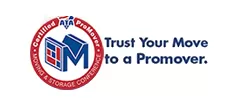Though nobody wants to break a lease early, sometimes people find it necessary or have no other choice but to do so. If you have the option to avoid breaking a lease, odds are you’ve tried to do everything you can to take the alternatives. If you’re voluntarily considering breaking your lease, or if you’re going to have to do so regardless, it’s important to know the potential issues you could run into while doing so. Learn the consequences of breaking a lease and figure out if doing so is worth it to move to your new home in this guide.
There is a multitude of reasons why somebody might break a lease on their apartment or rental. After all, in a constantly changing housing market, sometimes you have no choice but to break your lease to go for the right house for you. Plus, if the place you’re currently living in doesn’t fit you and you don’t think you can make it for a full leasing term, sometimes you’ve got to do what you’ve got to do!
Before deciding to break your lease, you should always be aware of the implications of doing so, as you can run into several legal problems if you don’t go about the process in the right way.
If you’re thinking of breaking your lease, first look over to understand the initial lease you signed so that you know exactly what you’re getting into, and what the complete terms are so that you can explore your options in breaking it.
Most leases contain an early termination clause that lay out the ramifications or consequences of terminating a lease early, including whether or not you can find a sublet option or a replacement tenant, notice to give your landlord or legal consequences. Some management companies will allow you to break your lease without significant consequence if you give adequate notice, give up your security deposit, or pay penalty fees.
When considering breaking your lease, the most important thing you can do is to communicate with your landlord as to what you’re thinking and whether or not you actually are going to go through with breaking your lease, especially if you would be doing so a little last minute.
You’re much more likely to get out of your lease with minimal pushback or consequences if you have good communication with your landlord and are on good terms. Talk to them about your situation and see if you can come to an agreement that works for everyone.
When breaking a lease, never just do so out of the blue. Breaking a lease and being in poor standing with your management company or property manager, as a result, can lead to having to pay significant penalty fees or even being sued by your management.
If you’re breaking your lease, be ready to deal with possible legal pushback or issues from your landlord. If you’re interested in tips for breaking your lease, keep reading.

When breaking a lease, try to explore alternate options in doing so to avoid legal problems as a result. For example, you could avoid the ramifications of breaking a lease by finding a replacement tenant to take over your lease. Keep in mind that when vetting people to sublet your place or room, make sure that you’re subletting to somebody reliable who can pass credit and background checks. Remember that your name remains on the lease when subletting, so you could be held liable if your subletter doesn’t make payments.
If you can’t find a sublet option but need to leave your place, consider the following tips to make sure that you’re ready for what might come your way during the process.
When breaking a lease, you can sometimes find protections for doing so through landlord-tenant law. You might be able to break your lease without penalty depending on the protections in your state.
This is federal protection specifically for service members and active military personnel. If you have to move for duty or to be put at a different station, show your new orders to your landlord or property management company and give written notice.
If you’re concerned about the behavior of your landlord, read over your lease and state laws to determine if the wording allows you to break your lease due to their conduct. The kind of landlord behavior that can be used to break a lease includes:
If you’re looking to break your lease because it isn’t up to code, poses a danger to you or your family, or is uninhabitable, you will be able to break your lease without ramifications if your landlord refuses or fails to make improvements and repairs. This is referred to as a ‘constructive eviction’ and is the fault of the landlord.
Another instance where you’re able to break your lease without worrying about the ramifications of doing so is in the event of a natural disaster. If your home is damaged or destroyed due to weather, you’re able to terminate without penalty.
When looking into breaking a lease, keep in mind that in doing so you’ll most likely incur early termination charges or fees, and could get a hit on your credit score in doing so. Your landlord could also possibly take you to court, and you might have issues finding a new place if you have a lease termination on your record.
Whether breaking a lease or not, finding the right place for you and your family is a complicated process. Once you’ve done so, make sure you’re working with the best moving company for your needs and budget – especially if you’ll need long-distance moving services. See what Hollander Storage and Moving Co. can do for you today.
Use this form to request a call back, or call us at 866-754-0907
Great experience with Hollander’s crew: Dominic R, Alex P, and Chris C. They were contracted (military move) to deliver some of our things that had been packed up and stored for a year, in a different location. They were professional and worked without complaints in the heat, placing our items carefully where I requested. They maneuvered a large, deep freezer down a tight staircase easily. They were thorough in helping me check to make sure all our things were accounted for, since it had changed locations/companies a few times before making it here. They were so helpful and courteous – I am very happy with my experience and would definitely recommend them!
-Timm.
The driver was the head of the crew, and he was on top of everything. He made the experience working with Hollander Moving a pleasure. We have used others before but it was our first time using Hollander. Everything turned out great.
-Eric Y..
Every employee I worked with was courteous, professional, and exceedingly competent. I was nervous about the packing and long distance move (from Illinois to New Mexico, October 2009) and Hollander helped make the move as smooth as possible. Not a thing was damaged or broken
-Kay S..
I would recommend Hollander to any company thinking about switching vendors, and any family making a move. A Hollander rep even stopped by my new place when they were unloading just to check on things.
Wonderful service – first class!
-Julia C..
Everything Hollander has done was over the top. It was courteous people, polite, caring. Their friendliness was over the top. There was one member of the crew who’d been a friend for 30 years, and the rest was family. I couldn’t say enough about them.
-Jerry M..
I recently moved from Chicago to Tampa and expected a few road bumps along the way but was pleasantly surprised when everything from loading to delivery was flawless. Everyone I came in contact with was very professional and knowledgable. I highly recommend Hollander Moving and Storage as they are a class act.
-Sandy C..
This move envolved packing and delivery to four different destinations. Attention to detail and coordination were vital and effectively executed by Tony R driver and his crew. Ardene did a great job coordinating everything. The entire group were both extremely pleasant and efficient.
-Gary T..












